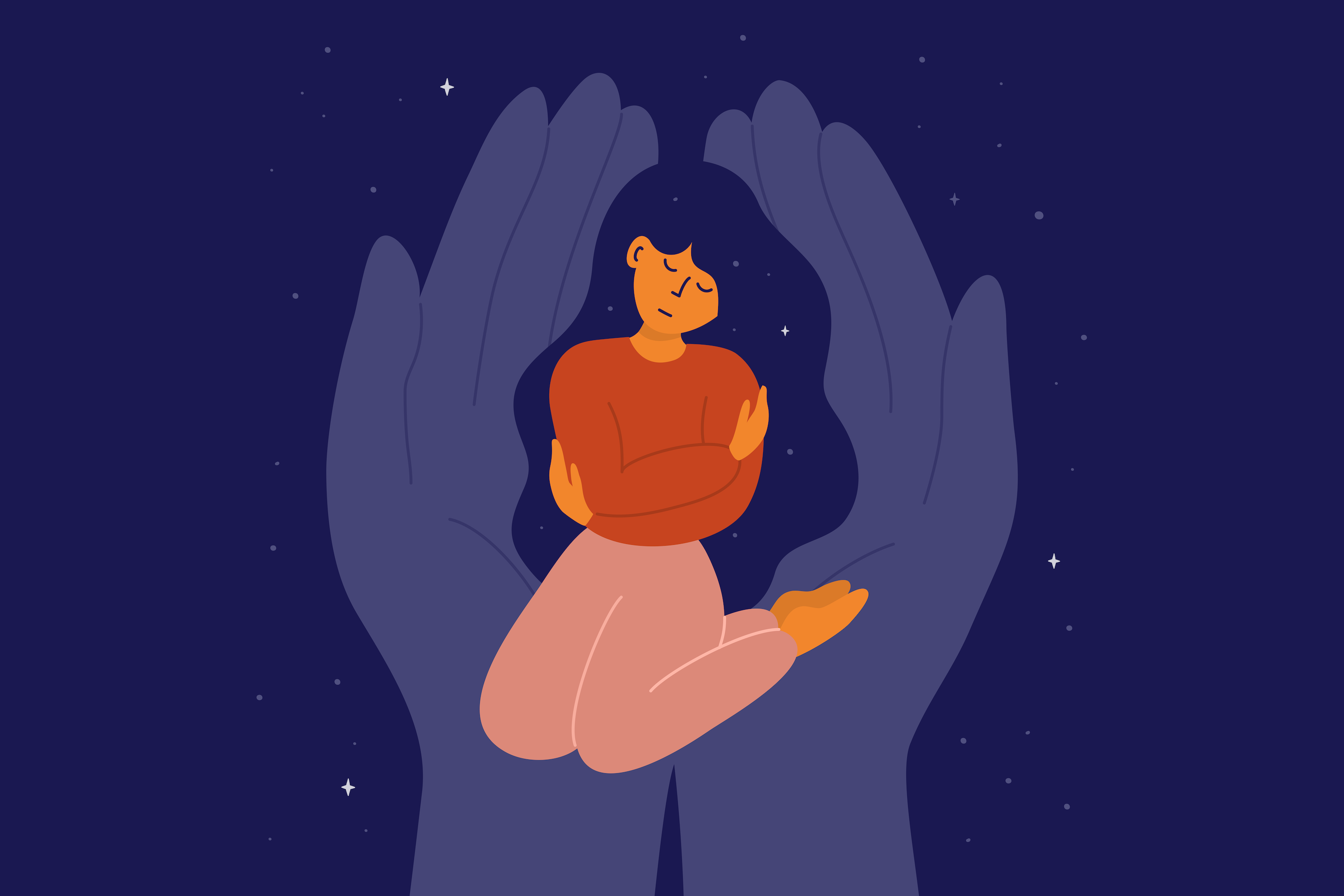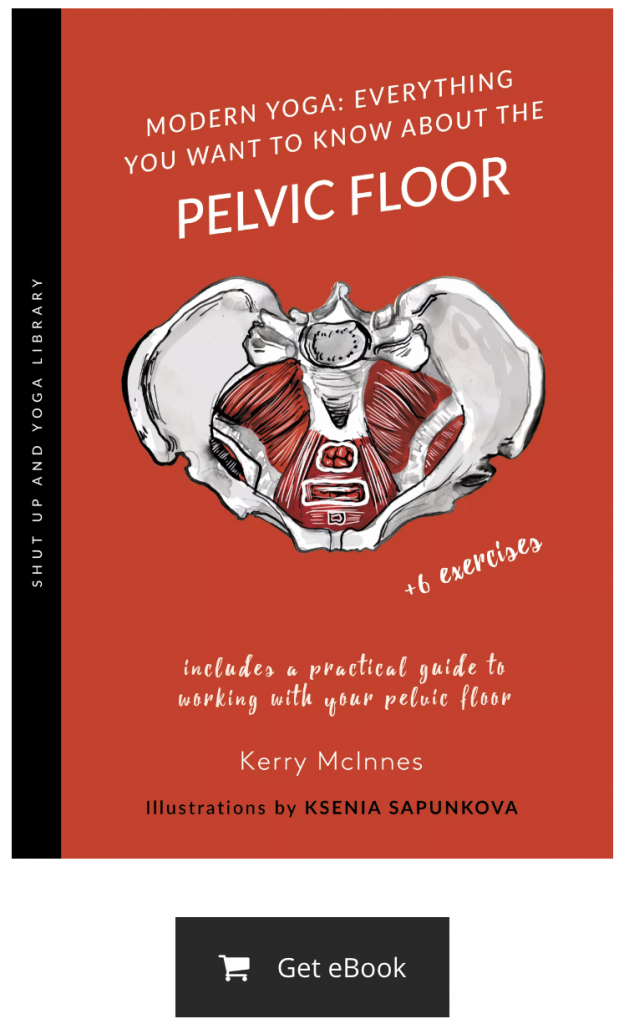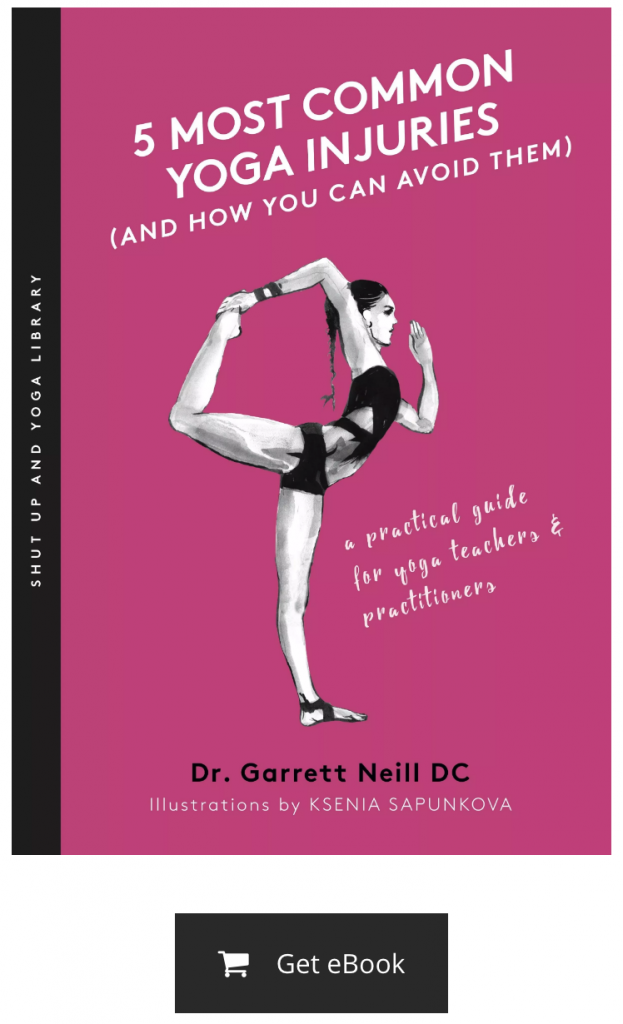There is a language I am hearing more and more in the worlds of personal growth and New Age spirituality that basically has it that the universe is constantly testing us. This ideology breathes heavily through the airwaves of life: on the internet, on peoples’ lips in chatter, and even in yoga classes. Often, it feels to me as if it is being expressed in the same tone people use when they say things like “life is against me!” It exposes a thought-frame in which we are at the whim of something that has power over us – the power to love us or punish us, the power to get us to adapt our behavior to appease said force. Our thought-frames have a potent effect on our feelings and behavior, and in the case of the thought-frame “the universe is testing me,” a spiritual attribute ups the pressure.
Giving the Universe a Status
Outside of conventional science, “the universe” suggests a somewhat mysterious concept and is open to diverse interpretation. In general though, it seems to be widely used to describe that sense of life’s Mystery, something bigger than us yet related to us, and which holds us in its attention, particularly when we hold it in ours. How that relationship is interpreted develops into a variety of theories. In the being-tested scenario, there is a distinct hierarchy in which the universe must be an adjudicator and humans the ones being judged. “Universe” is a term we might use to express a range of all experience, an all-pervading spirit, or as a replacement for the word God.
According to this scenario, when we are in difficulty, when things don’t go the way we had hoped, when we make a mistake for which there is a big payback, when we feel generally uneasy on the inside, it’s the universe’s doing. The universe has put something in our way so we will learn our lesson because that is how education systems tend to work. They give you things to learn and, to make sure you have learned them correctly, they need to test and assess you. And if my memories from school serve, some of those tests are damned hard.
On the other hand, when we are doing well, when we are feeling at ease within ourselves, when we are growing what we want to grow, this model says it is because the universe is pleased with us and we are passing its tests with flying colors – go us! But when we are experiencing bad times, it is teaching us. Perhaps these bad times are also a kind of punishment borne of the universe’s displeasure with us. It can certainly feel that way – because who wants to experience bad times, and when did failing a test ever bring a sense of pleasure?
A Societal Obsession with Testing
While I can see how we could come to this reasoning, and even why it might be appealing, I personally don’t believe the universe tests us, and I find it a problematic idea to entertain. Living life as if something bigger than you is out to prove you wrong or right is, to my mind, a miserable way to live that leaves little room for self-forgiveness, risk-taking, creativity and experimentation, authentic learning, and a healthy free will.
I am fascinated by what is so enticing about passing tests while knowing from my own experience that it can become a dangerous obsession, triggering the demons of unhealthy perfectionism. From an early age, I was drawn to the notion that the better I did in exams, the more I was worthy of feeling valuable. My parents were Oxford University educated and my father was an Oxford professor. ‘A’ grades were an expectation rather than a reward for effort. At my school, failing an exam meant there was “something wrong at home,” whereas the truth was, as in the case of the numerous Math exams I failed, that Math was boring to me and I daydreamed in class. I have not found that I have regretted this choice (hooray for the calculator app!), and there was nothing wrong at home, but the official records accurately reflect my significant failure to pass the tests.
Where I felt passionately invested – the arts and humanities – I almost killed myself by pushing and striving and over-working myself to get the highest grades. My pleasure in learning was cast in shadow by my terror of failing. In my mind, failure meant my efforts were invalid, that I had fallen short, that I had been found wanting. It really was as if the very conditions of my personal growth and worthiness were centered around a system of tests and grades. I took many of my exams, unwell and suffering, in the university’s health center.
A Deep Indoctrination into Earning Love
Modern culture has evolved to be reward-punishment based – a message reinforced by marketing and advertising. Life has to be earned or paid for in some way. Those who are doing well in life have the good looks, the good lives, the good stuff. Even parenting models reinforce these ideas of “earning” our place under the lens in a loving gaze. When a child behaves, they pass an unwritten test that deems them worthy of a hug or treat. When they misbehave, they are exiled to their room. The child may learn they are only worthy of that loving gaze if they perform a certain way. Our education systems are test-exams-grades-based – we literally can’t move forward (to the next year level, to college, to graduation) unless we pass a test. It is easy to see how deeply indoctrinated we are in the idea of “doing well” because we did the right things to pass a test and that by doing so, we are deemed worthy of moving forward (personal growth, “the shift”). We are worthy of that loving gaze from the universe not because it is infinite and available, but because we walked through the fiery path to get there and did not complain about getting burned.
That the universe is testing us is a thought-frame that leans on upbringing, culture, advertising, religion, and story-telling. Mythologies from religion and fairy-tales alike speak of tests and initiations where only the mighty succeed and become models for the heroes we should all hope to be. Religious systems and cults have used the testing model as a way of maintaining order since people walked the face of the earth. It keeps a hierarchy intact. It is a system of organizing the ranks.
The Alternative; Love, Healing, and Renewal
Although there are plenty of models in which we are asked to outsource our will to a distant power, we also have religion and spirituality and our own instincts and experience speaking gloriously to the meaning of free will, individuality, and a free spirit.
In the Tantric lineage of my yoga practice, the universe is spanda – a word that means both “pulsation” and “vibration” – a secular, scientific reflection of which we find in quantum physics. Everything in the universe is energy, and our energy comes from the same source. We can feel it, we breathe from it, our own vibrancy is an expression of it. We can feel a person’s light. In this model of the universe, we are not victims of a higher source of intelligence; we are part of that source. It lives and breathes in us. We can feel our own light. Openings happen when we connect to these vibrations in ways that allow expansion, rather than when we are under the lure of a test or the threat of punishment.
Many of us have times when we don’t feel welcome in the world. We may feel we have not earned the pleasure of receiving from the beauty of life. There are people who have failed so many tests and been punished so many times that they believe they are bad or worthless. Some people have never been told they are good, so how can they believe it? Rather than buying into the idea that the universe is judging us, we can instead feel it operating within us and we within it. In this way, we can perhaps begin to embrace our whole selves – even the parts we can’t normally look at and recover those rejected places from exile. We can feel ourselves again, and worthy.
While Tests Can Defeat Us, it is Revelation that Expands Us
From Yoga-Tantra, we have another beautiful concept – Anugraha. This is the revelatory power of spirit that supports everything we do: the power that reveals our true nature. Anything that brings the light of that revelation is a gift. Sometimes that gift will come in the form of something obviously and distinctly welcoming and liberating; sometimes it will come in the form of the hardest thing we ever had to face.
How do you deal with the challenges of life? One thing I have found useful is to look for the gift. And sometimes that gift might become clear when, despite my genuine efforts, I can’t find the gift – someone else can. Someone else can offer the quality the situation needs to help me be with the challenge and work through it: anything from a listening ear and welcoming heart to a new perspective or a solid solution.
Seeing the gift also requires that we feel worthy of being helped, of being supported, of being gifted. The beginning of all worthiness comes from feeling our own capacity to love ourselves – and maybe what we learn most from challenges is that we have this capacity and we can always cultivate ways to find it.
If this is a big shift for you – as I know it has been for me – when you feel tested, I invite you to consider that it is you, yourself, who thinks they are being tested, and not the mysterious work of some unknown spiritual force out to discipline or change you. What if, instead, you are infinitely loved? Consider that you are loveable as you are, rather than a useless human being who “needs work.” Self-love begins with agreeing to, at least, consider that there are other ways of viewing oneself than as a person who cannot be loved.
Mistakes as a Pathway to Expansion, Not As Problems that Limit us
Everyone’s journey is different, and we each have a choice about how we take that journey. We might begin our journey each day by remembering that we are not damaged or broken or bad, and that it is okay to feel challenged because challenges naturally arise. Challenges are of the nature of life itself, not a problem we have created or a way of being “pushed into shape.” Those same texts and experiences also speak to the existence of unconditional love and acceptance, of compassionate mind and heart, and a motivation for personal growth based on a desire to live fully and authentically. Rather than fulfilling a need to have a rational explanation for everything that happens to us in this unfathomably complex life, rather than be shaped by our challenges into a pre-manufactured mold, perhaps what life is showing us all the time is that there is much love, forgiveness, and inspiration available. Miracles can happen that are beyond our understanding.
When I was younger, my perfectionism told me that making a mistake was failure. Living with that sense of peril, I hurt myself. I made myself a victim of the inevitable. I was living within a narrow inner-system, in no small way informed by a narrow outer environment.
We humans are adept at externalizing internal experiences we can’t understand or which feel too uncomfortable. We like reasons. It can feel helpful to attribute reasons to something we also don’t understand and let it take care of it all for us. We can call it “the universe” (or any other name), and when we meet challenges, or we perceive we have made a mistake, we say we are being “tested” – which, after all, is a system we have been well-familiarised within our earthly lives. It is also another way of saying we have been judged and found wanting.
I find this is a limited way of thinking. It’s a thought-frame. It’s just another system. It makes the Mystery we live in seem as small and narrow as a pop quiz, as the rat race, or as the corporate ladder.
Simply externalizing what is internal can impoverish our sense of freedom and autonomy and also our self-care in the moment. If something challenges me, and I go straight to “I am being tested, what is the lesson here?” I may miss the step of allowing and embracing my feelings as perfect in that moment simply because they are what I am feeling. This is the very definition of “unconditional self-regard” – the thing we go to our therapists for. We can give that to ourselves if we learn to first tolerate and then welcome and embrace our emotional lives.
It is love itself that provides the healing and the shifts, rather than tests that deem us worthy of it.
Connection, not Perfection
Perfectionism and low self-worth are bed-partners that breathe life into each other at every turn. Add an external and unbidden test to the mix, and we are creating a hotline to pain. We are allowing ourselves to be victims of life rather than collaborators and allies because we have given this external force a power over us, to decree or not decree our right to progress through life, while making as many mistakes as we might. Life is challenging enough without the need to meet an external bar over which we have no say.
Perfectionism says we can’t make mistakes. Wisdom says we can, and that we probably will over and over again. A loving path invites us to meet these experiences in healthy and flexible ways that procure freedom and growth.
I believe the universe (or the Lifeforce, or Spirit, or Mystery, or God) loves us. And we are loved beyond needing to perform or prove or jump through hoops or keep our trust during a crisis or any other physical, mental, or spiritual gymnastics. We are loved because love needs no conditions. We are loved because we are loveable – as is every living life-form.
A dear friend offered me this phrase: “connection, not perfection.” In my eternally-recovering state, I use it as both balm and boundary against any infiltration of past perfectionist tendencies.
I also remember the yoga-word “Shrada” – “how I place my heart.” I have a heart in the form of beliefs and my potential to truly love and enjoy myself and life, and I can place it in any number of postures. Am I going to place my heart in the idea that I need constant checking and testing by the universe because I am not “good enough” in this moment and need to improve? Try pointing that question straight to your own heart: how does it make you feel?
When I am being challenged, I’ve shifted from asking, “What did I do that was wrong or imperfect?” to “What would Love tell me about this?” Try this. It changes things. We all have so much love inside us and this is a way of accessing that; for ourselves and for the world.
Inner Teacher, Inner Knowing
From The Vedic aspects of Yoga, we have the idea of Guru Tatva “the teacher within.” But we forget that we have this inside us, and contract out this power to “the universe” or any external thing. We are in touch with our inner teacher when we feel what resonates with us, rather than what is “doing something to us,” such as testing us. There is a feeling of familiar wisdom, of knowing. Anything that reveals that to us – our children, the moon, a sunset, a friend, an experience – is Guru Tatva. The key point is, we can’t see this inner teacher who is closer than our pulse while our attention is busy wondering how to climb some external ladder constructed for the pursuit of our enlightenment.
Rather than test us, life may prompt us and give us a loving nudge to pay more attention. Life can show us so many things of value for our growth and deepening connection, but it needs us to look, to take the filters off. It requires us to move beyond concepts that see life’s territory as narrow and toward a gaze which can take in the whole expanse of the universe and marvel at what it can offer us in exactly our own beings.
Over twenty years ago, I experienced one of the most challenging parts of my journey when I found myself sitting before a neurologist, hearing the result of my MRI and being told I had Multiple Sclerosis. Leading up to that time, I had, I admit, felt not only tested by life-the-universe-and-everything, but fairly kicked around by it, battered and bruised by baffling symptoms and their impacts. In that moment, however, I felt the deepest love for life I have ever felt. I took that and ran with it and worked on repairing my unhealthy relationship with worthiness. The more I went with that love, the more I felt life loving me back.
In that moment, I experienced the universe as unconditionally loving. That created a sea change in me and my mental, physical, and spiritual health. I have appreciated this again and again and its lessons (freely given and from love!) about the dangers of contracting out our experience to an external reasoning over which we have no control. I have come to understand something profound: that to experience anything outside of us as loving, we have first to see ourselves as unconditionally loveable. Sometimes it is easier, perhaps, to see ourselves as worthy of love only when we prove that we are, by acting a certain way, and by passing certain tests. Sometimes it is easier to see ourselves as “testable,” rather than take the journey of deeming ourselves worthy of love.
While MS has taught me valuable lessons I might not otherwise have gotten – a great teacher living in my body – so much of that is down to the way I chose to meet it and ways I chose not to meet it. I chose not to meet it as either a punishment or a test of worthiness, but as a way of learning to be kinder to myself than I had been. I believe Spirit (as communicated to and experienced by me) is very happy that I learned what has always been the case. I have healed so much inadvertent self-loathing. In this way, MS has not been a test, but a gift. That gift has brought me more appreciation of love – especially my own self-love – than I could ever have imagined.
Anyone reading this might say, “But that’s another thought-frame. You’ve just replaced the word ‘test’ with the word ‘love.’” To this, I would reply that when I look around me at nature, I see that things grow abundantly when offered love and nurture, rather than tests and restraints. I see that nature instinctively reaches towards the light and nourishment it needs without a question of whether it has earned these things. I see that after storms and earthquakes and volcanoes – and even in the face of needless human destruction – our planet and the life on it renews itself again and again and again.
I think love flows down from the stars and up from earth and between the trees and forests and oceans and mountains and us. I experience that we are deeply related to this love. We give it, we receive it. We ARE love.
I don’t believe – and have not experienced – that in healthy loving relationships, we need to pass a test or perform according to certain criteria or live within “exam conditions.” So, I choose not to use this language of being “tested by the universe.” Not in mentoring my clients, not in my personal life. There are things in life that challenge each of us. The right way to meet challenges is whatever the healthy way is for each of us – and there are so many ways. Rather than, “The universe has created a test for me,” we could choose to say, “my capacity to live and love is being revealed to me through challenge.” And that is valuable beyond measure.
I have found that one of the ways to meet challenges is to draw upon all that love that flows in us and through the universe. Abandon the test and look for love and trust. It’s in our compassionate mind and hearts, it’s in our memories, it’s in the simple things. It’s all around us in nature, in the arms of our best friend, the steady gaze of our pet, the things that delight our hearts, the part of us that always knows a shift will come.
Maybe it’s not about proving we are loveable, but about accepting it.
Edited by Jaimee Hoerfert and Jordan Reed




